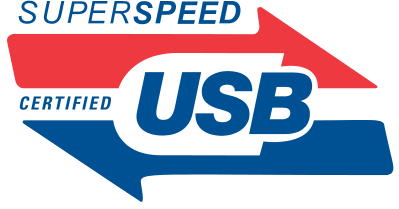I'm not so sure they will. USB 3.0 native support will be a huge incentive for users to upgrade. Especially those who in the next few years start to buy newer boards. Microsoft has been experimenting, since Windows XP, with purposely withholding from earlier versions new features/advancements. DirectX comes to mind.
Ah, good... Rob is backing you on this. *rubs hands together* We shall see!

Microsoft has always been adding built-in hardware support. Vista's SP1 literally doubled the number of drivers the OS had for various hardware, added support for Bluetooth 2.1, and did some major reworking to try and fix the horrible issues with file transfers. But every single service pack since XP SP1 has added support for new hardware technologies that have emerged. None have been as major as USB 3 perhaps, so we shall see. I can't even count the number of service packs NT and Win2k got when features & changes made in XP were backported.
DirectX 11 is fully supported on Vista SP2 today, as long as users download an additional hotfix from MS first... As for DX10 and XP, it was certainly feasible to port it into XP I'll grant, but I can understand Microsoft's explanation of it not being worth the effort.
XP's graphical stack was conceived before AGP was reaching 2x status. The GUI stack itself was not well designed, leading to instances where locks in GDI objects would lockout Explorer even when the underlying system was still fine, and other scenarios could bottleneck performance. Even worse, XP's graphical stack itself was inflexible, so it wasn't capable of supporting Crossfire and SLI natively. NVIDIA and ATI both had to spend extensive resources hacking the display stack to make their multi-GPU drivers work. The end result was the workarounds easily compromised driver stability as often as not, leading to system crashes instead of actually working. Vista and Seven's stack by comparison removed these issues and is capable of supporting multiple GPUs in multiple usage roles, even with ATI+NVIDIA drivers & hardware installed simultaneously. Honestly XP couldn't even handle two GPUs from a single manufacturer, such a concept was outside the realm of possibility when the XP graphics stack was created. Hell, XP couldn't even support >137GB sized hard drives without getting SP1... I would be willing to have bet that adding DX10 to XP would've only further negatively impacted stability, as well.
I agree that keeping USB 3 as a Win8 only feature is great from a marketing standpoint. But I'm still betting that MS will be including it whenever they do have Win 7 SP2... they might release Win 7 SP2 a few months after Win8 though, that would be typical of past service packs if they did.


